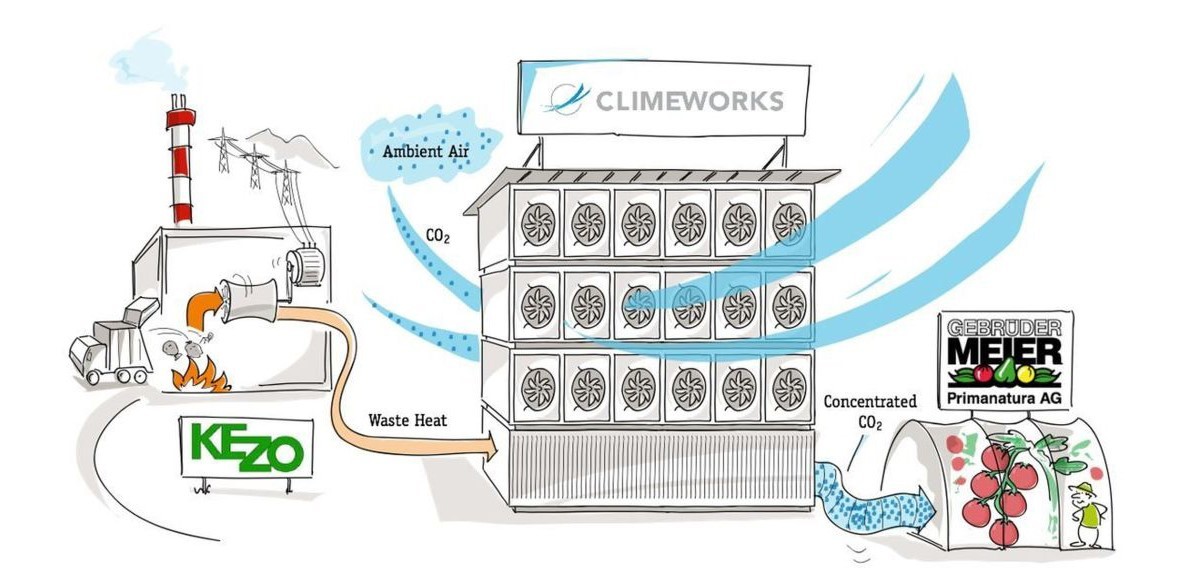
The farm no longer receives CO2 from industrial sources by truck, but from Climeworks. In this way they indirectly reduce CO2 emissions. The Hinwil plant consists of 18 filter modules. Each individual can skim off about 50 tons of carbon dioxide per year.
The ambient air is sucked in by the Climeworks systems and CO2 is chemically bound to the filter. The CO2 is then released from the filter and collected as concentrated CO2 gas to supply customers or technologies. CO2 free air is released back into the atmosphere.

Agriculture offers itself as a potential buyer of CO2, as CO2 is considered a valuable fertiliser there. Correctly dosed, the gas allows plants to grow faster and stronger.
The increase of the CO2 content in greenhouses increases the photosyntherate, which increases the yield. Climeworks systems are particularly attractive when waste heat is available, for example from neighbouring industries, as they can be used to drive the systems.
The plant is therefore perfectly located in the KEZO waste incineration plant in Hinwil, Canton Zurich. The direct air collection system is installed there and supplied with heat. The high-purity CO2 is delivered to the neighbouring Gebrüder Meier greenhouse. The gas is pumped into the greenhouse atmosphere, which increases vegetable and salad growth by up to 20 percent.
"The use of local CO2 from the ambient air meets our standards for sustainable production and has a positive effect on the marketing of our products". Fritz Meier, Gebrüder Meier.
Source: www.climeworks.ch